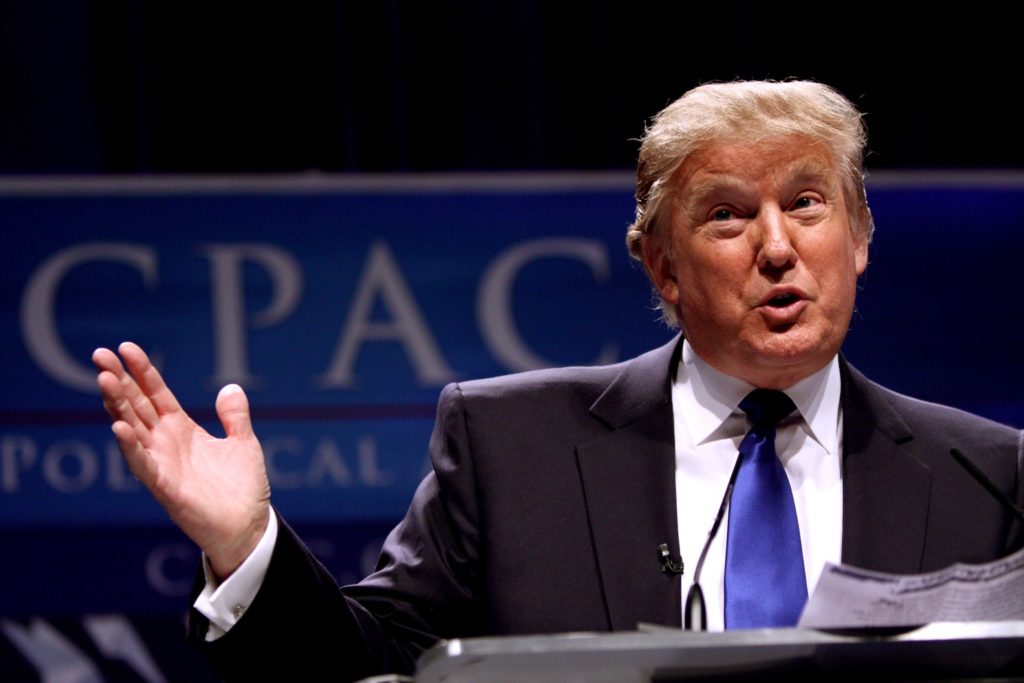Will the GOP reform its electoral system?
By Chris Forcini, political blogger
It’s no secret that Donald Trump has rocked the Republican establishment. In the shadow of his commanding lead, candidate after candidate has left the race, leaving only four challengers between him and the nomination following his victory in Nevada. He has been the target of attacks on the debate stage, on the campaign trail and in the media. Yet, against all conventional political wisdom, Trump continues to climb.
His poll numbers are far stronger than expected. On Tuesday, a Quinnipiac poll revealed that Trump holds a five point lead over John Kasich in Ohio, despite the governor’s 77 percent favorability rating among likely Republicans there. With every passing day, it becomes increasingly difficult for the GOP to find a way to tackle Trump.
While the New York businessman wins over voters, the GOP seems powerless in stopping his forward march. A strong showing on Super Tuesday could give Trump a substantial lead, and the establishment candidates may not be able to catch up.
The GOP’s primary delegate allocation system, specifically its lack of influential superdelegates, may be partly responsible for their inability to respond to Trump. The Republicans and Democrats both feature “superdelegates,” but their roles vastly differ. On the Democratic side, superdelegates are important members of the party, like active congressmen, governors, party leaders and more. These delegates are free to vote for whichever candidate they want, and they comprise approximately 15 percent of the Democratic Party’s total delegates.
Republicans, by contrast, do not place nearly as much importance on superdelegates. The three party leaders of each state are GOP superdelegates, meaning 150 superdelegates attend the Republican National Convention. This represents approximately 7 percent of the total GOP delegates. In 2015, however, the GOP stripped its superdelegates of the ability to vote according to their will. They are now required to cast their vote for whichever candidate their state chose in the primary process.
The 2015 reforms effectively eliminated any chance of the GOP defeating Trump by its own will. It’s almost certain that the Republican establishment does not want Trump to win the nomination, as evidenced by his complete lack of endorsements from congressmen, senators or governors, excluding his most recent proponent, Gov. Chris Christie.
As the race progresses, some analysts predict Marco Rubio will present the biggest challenge to Trump. With every win, however, Trump distances himself further from the field. Superdelegates could prove influential in a race like this. If Republican superdelegates had the power to vote according to their will, they could band together and give support to a more favorable candidate, perhaps taking the nomination from Trump and giving it to Rubio.
Some have considered a brokered convention to be a real possibility. If no candidate enters the Republican National Convention with more than half of the delegates awarded in the primary process, a brokered convention will ensue, in which delegates are allowed to vote for whichever candidate they choose. In this case, Trump would almost certainly lose, as party members would rather give an establishment candidate the nomination. However, this option entails grave risks. Trump supporters could be sent into a frenzy, refusing to vote for the eventual Republican nominee and sending a Democrat to the White House. Perhaps worse, Trump may decide to run as a third party candidate, taking more votes from the Republicans and handing the Democrats an easy victory.
The GOP should take a lesson from this election cycle. While it may be extremely difficult, if not impossible, to prevent Trump’s nomination this year, the party can take steps to prevent a similar outcome in the future, and a reform of their electoral system would be the best way to do so. The first order of business is to reinstate superdelegates’ ability to vote for whichever candidate they please. Next, the party can increase its influence by adding more superdelegates. If they represented 15 percent of the delegate count, like in the Democratic Party, superdelegates could be used more effectively to deflate undesirable nominees. With control over 15 percent of delegates, the GOP would be much better positioned to prevent future insurgent candidates from winning the nomination.
With these reforms, the GOP could quietly influence the primary process. Whereas a brokered convention would have dramatic consequences, superdelegates would cause less outcry. The Democrats already use this system, so there is precedent for the GOP to follow.
Delegate reform is an interesting option to prevent future instability. Winning the White House is the GOP’s ultimate goal, and they need a credible candidate to do so. This election cycle has proven the current system’s susceptibility to outsiders; preemptive action would serve the GOP well for 2020 and beyond.
Sources
Millstein, Seth. “Does The GOP Have Superdelegates? The Republican Party’s Nomination Rules Are Different This Year.” Bustle. Bustle, n.d. Web. 23 Feb. 2016. <http://www.bustle.com/articles/141611-does-the-gop-have-superdelegates-the-republican-partys-nomination-rules-are-different-this-year>.
Schleifer, Theodore. “Poll: Donald Trump Tops John Kasich in Ohio.” CNN. Cable News Network, 23 Feb. 2016. Web. 23 Feb. 2016. <http://www.cnn.com/2016/02/23/politics/john-kasich-donald-trump-ohio-poll/index.html>.
Photo by gageskidmore, Creative Commons









